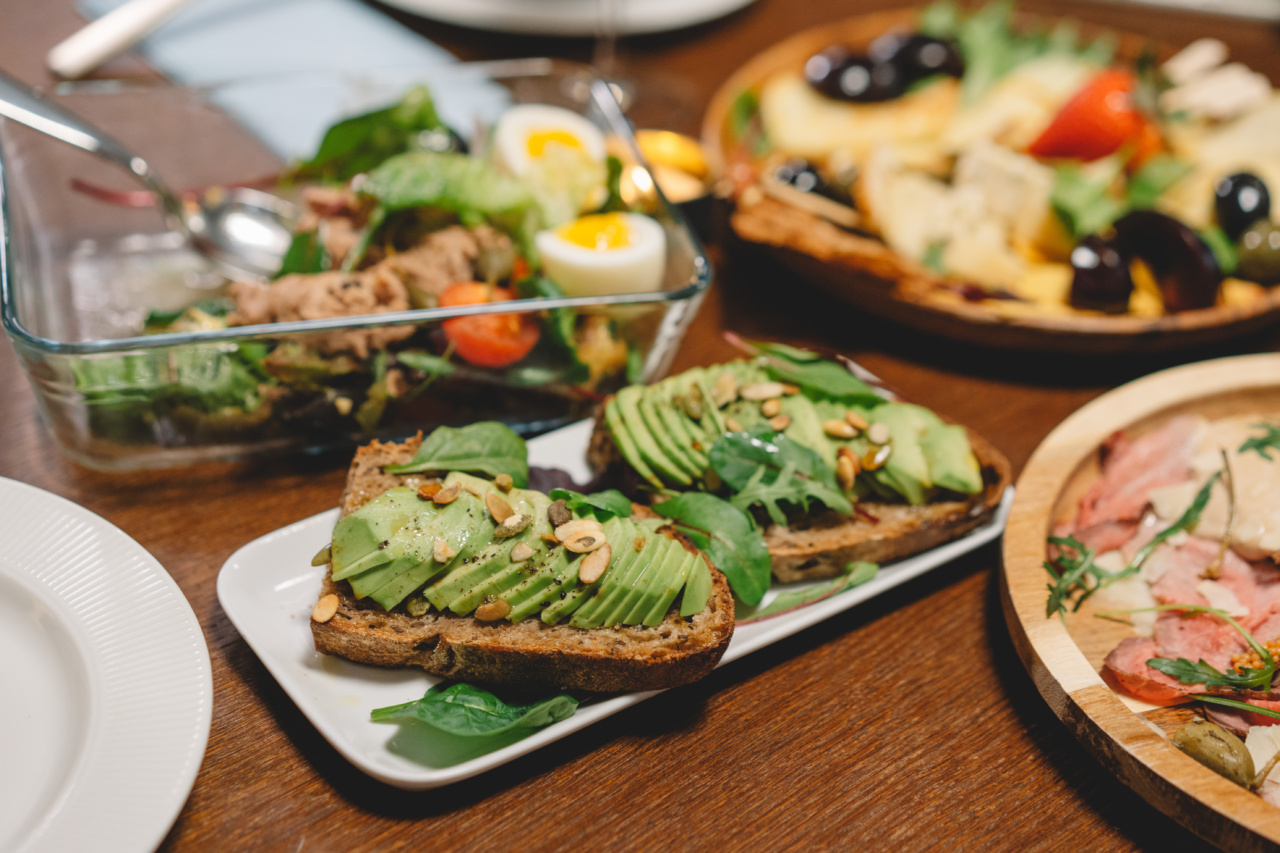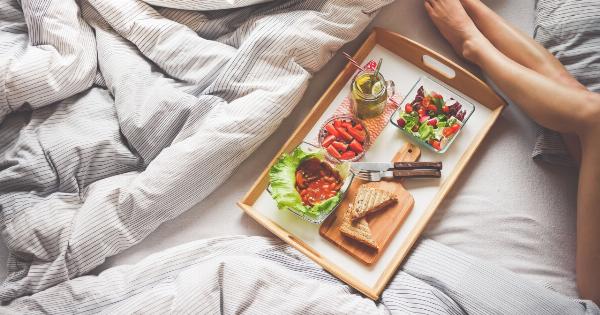Insomnia is a sleeping disorder that affects millions of people worldwide. It is characterized by difficulty falling asleep, staying asleep, or both.
Without proper treatment, insomnia can lead to adverse effects on one’s mental and physical health, as well as a decline in productivity and quality of life. While there are several over-the-counter and prescription drugs that can treat insomnia, natural remedies like herbs and foods have been found to be equally effective and with fewer side effects.
In this article, we will explore some herbs and foods that can help you overcome insomnia and get a good night’s sleep.
The Role of Diet in Sleep Quality
Your diet plays a significant role in determining the quality of your sleep. Certain foods and nutrients can promote sleep, while others can interfere with it.
For example, consuming high-calorie foods, caffeine, or alcohol before bedtime can disrupt your sleep-wake cycle and make it difficult for you to fall asleep or stay asleep. That’s why it’s important to eat foods that support your sleeping patterns. Here are some foods that may help:.
1. Cherry Juice
Cherry juice is a natural source of melatonin, a hormone that regulates the sleep-wake cycle. Studies have shown that drinking cherry juice twice a day for two weeks can significantly improve sleep quality and increase melatonin levels in the body.
Tart cherry juice, in particular, has been found to be more effective than sweet cherry juice. You can drink cherry juice on its own or mix it with other fruit juices for a tasty sleep-promoting beverage.
2. Chamomile Tea
Chamomile tea has been used for centuries as a natural remedy for anxiety, depression, and insomnia. It contains flavonoids and terpenoids, compounds that have relaxing and sedative properties.
Drinking chamomile tea before bedtime can help reduce anxiety and promote sleep. You can brew your chamomile tea using fresh or dried chamomile flowers.
3. Walnuts
Walnuts are a good source of tryptophan, an amino acid that helps the body produce serotonin and melatonin, two hormones that regulate the sleep-wake cycle.
Eating a handful of walnuts before bedtime can help you fall asleep faster and promote a deeper sleep. They’re also a good source of omega-3 fatty acids, which can reduce inflammation in the body and promote heart health.
4. Kiwi Fruit
Kiwi fruit is another natural source of serotonin. Eating kiwi fruit one hour before bedtime has been found to improve sleep quality and reduce the time it takes to fall asleep by up to 35%.
Kiwi fruit is also rich in vitamin C, which can boost the immune system and protect against oxidative stress.
5. Spinach
Spinach is a good source of magnesium, a mineral that plays a key role in regulating the body’s stress response and promoting relaxation. Magnesium deficiency has been linked to increased levels of stress and anxiety, which can lead to insomnia.
Adding spinach to your diet can help you get the magnesium your body needs to promote restful sleep. You can eat spinach raw, cooked, or blended into a smoothie.
6. Lavender
Lavender is a fragrant herb that has been used for centuries as a natural remedy for anxiety and insomnia. The scent of lavender has been found to have a calming effect on the body, reducing stress levels and promoting relaxation.
You can use lavender essential oil in a diffuser or apply it topically to your skin before bedtime to promote sleep.
7. Valerian Root
Valerian root is a herb that has been used for centuries as a natural sleep aid. It contains compounds that have sedative properties and can help reduce the time it takes to fall asleep. Valerian root is available in supplement form or as a tea.
If you’re taking valerian root supplements, make sure to consult with your doctor first, as it can interact with certain medications.
8. Passionflower
Passionflower is a herb that has been used in traditional medicine as a natural remedy for anxiety and insomnia. It contains compounds that have sedative properties and can help improve sleep quality.
Passionflower is available in supplement form or as a tea.
9. Ashwagandha
Ashwagandha is an adaptogenic herb that has been used in Ayurvedic medicine for centuries. It helps the body cope with stress and anxiety, reducing cortisol levels and promoting relaxation.
Taking ashwagandha supplements before bedtime can help improve sleep quality and reduce the time it takes to fall asleep.
10. Magnolia Bark
Magnolia bark is a herb that has been used in traditional Chinese medicine as a natural remedy for anxiety and insomnia. It contains compounds that have sedative properties and can help improve sleep quality.
Magnolia bark is available in supplement form or as a tea.
Conclusion
Insomnia can be a debilitating condition that affects your quality of life.
While there are several prescription and over-the-counter medications that can treat insomnia, natural remedies like herbs and foods can be just as effective and have fewer side effects.
Incorporating sleep-promoting foods like cherry juice, chamomile tea, walnuts, kiwi fruit, spinach into your diet, and using herbs like lavender, valerian root, passionflower, ashwagandha, and magnolia bark can help you get a good night’s sleep and wake up refreshed and energized.





























